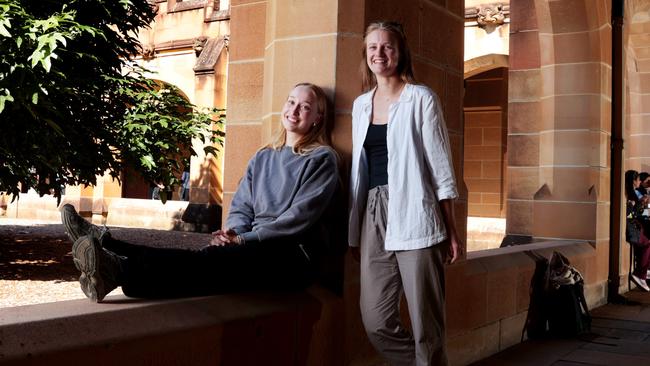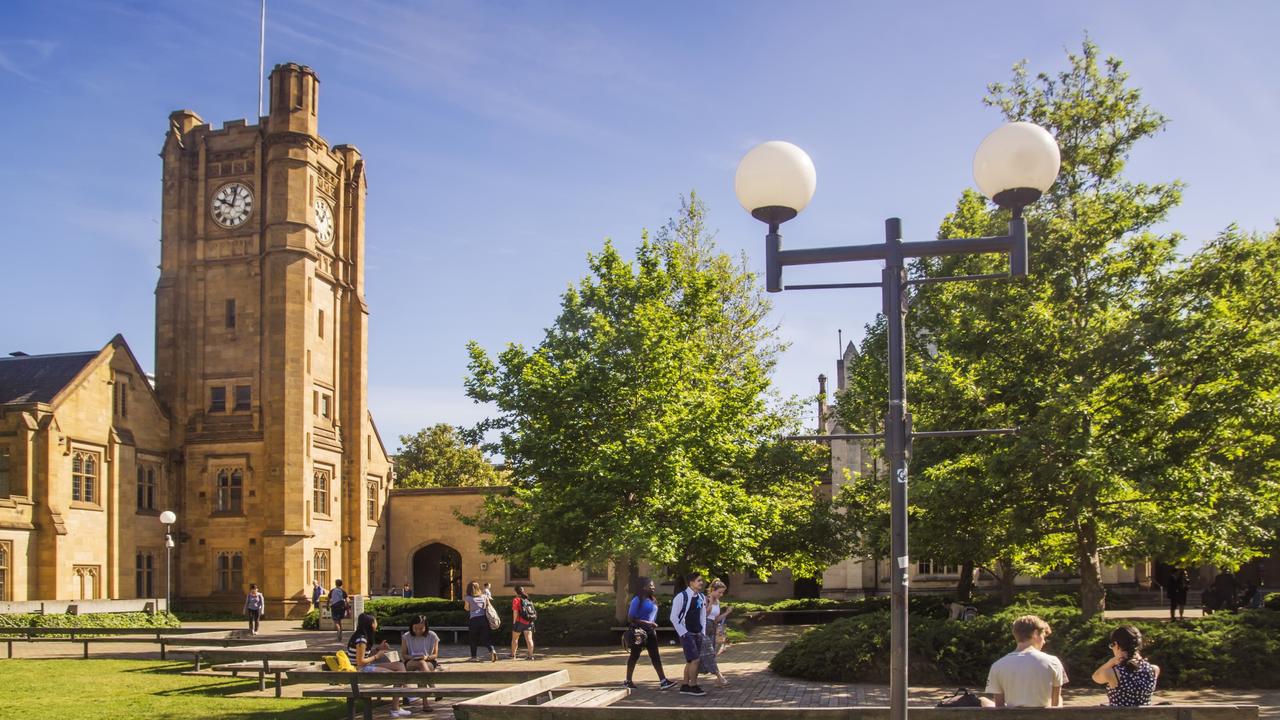Concerns swirl around Labor’s international student ‘soft caps’
Labor’s proposal to set ‘soft caps’ could lead to job losses, stakeholders warn, with the visa application fee for international students set to be doubled in Tuesday’s budget.

Labor’s proposal to set “soft caps” on international student numbers at each university and college will lead to job losses, could damage Australia’s reputation overseas and may reduce the number of foreign students in regional areas, according to stakeholders who are demanding more detail from the Albanese government.
In another blow to the international education industry, The Australian understands the government is expected to more than double the $710 visa application fee for international students in Tuesday’s budget.
The $710 fee, non-refundable if a visa is refused, is already more than twice the equivalent fee for students applying to study in the US and New Zealand, and more than four times as expensive as the Canadian fee.
The government will also announce a new review, a strategic examination of research and development, reporting to Industry and Science Minister Ed Husic.
As consultation on the student caps, designed to halve the net migration intake to 250,000, began on Monday, tertiary education providers cautioned against a January 1 start date given the extensive talks that will be required to achieve the provider-by-provider agreements.
A university will be able to enrol additional students above the cap if it establishes new student accommodation for domestic and international students, with the provider having to give a commitment to the government it will be able to accommodate a certain number of students.
The Coalition seized on the condition, saying it created a “perverse incentive” to build more accommodation for foreign students “rather than put Australians first”, while the Greens lashed the “shortsighted and heavy-handed” caps proposal and “extraordinary powers” handed to the education minister to set university enrolment levels.
University of Sydney vice-chancellor Mark Scott said the changes may have “unintended consequences that could harm the broader sector and Australia’s reputation internationally”, and urged the government to carefully weigh the pros and cons of caps.
While Professor Scott was pleased the government wasn’t imposing an arbitrary cap across the board, he noted it was the vocational sector that had faced “greater issues” with international students. “We appreciate there can’t be unlimited growth; at the same time, we need to be very careful not to damage our international education sector,” he said.
“Rather than trying to significantly cut down the number of students studying in Australia, (the government) seems to be seeking to manage moderate growth over time so it’s predictable and reasonable, supports students and reaps the benefits they bring.”

Student caps are a key part of the government’s draft International Education and Skills Strategic Framework, which it wants to legislate after a consultation period.
The peak body representing independent higher education and vocational education and training providers warned the government’s “drastic shift through increased regulation and oversight” was “excessive” and would cost jobs in the sector.
The Independent Tertiary Education Council Australia said the framework offered “ordinary policy options lumped together with a series of bad ones”.
“ITECA members have problems with the government’s command-and-control approach to international education set out in the draft framework. It seeks to tell independent tertiary education institutions what they should and shouldn’t offer international students,” a spokesman said.
Regional Universities Network executive director Alec Webb said there was a possibility the caps could reduce the number of international students in regional areas, depending on how the limits were developed and managed.
“For example, 2022 international student numbers for regional universities were down 50 per cent compared to 2019, which is significantly higher than the sector as a whole. If they said ‘it’s going to be as of 2022’, it’s going to significantly disadvantage regional universities compared to if it was set pre-Covid,” he said.
Opposition education spokeswoman Sarah Henderson said Labor’s “opening of the floodgates” to record levels of international students was fuelling the housing crisis and causing “unprecedented chaos” in the international education sector, describing it as a “mess” of its own making.
The Coalition left open the possibility of backing the caps.
Greens deputy leader and higher education spokeswoman Mehreen Faruqi said the Albanese government was “scapegoating international students to distract from their own total failure to address the housing and rental crisis”.
Education Minister Jason Clare, who met with the government’s expert members of the International Education Council on Monday, said international education was a valuable national asset and consultation would “make sure we get the design and implementation of these critical reforms right”.
“(International education) doesn’t just make us money, it makes us friends. These reforms will help to set it up for the future,” Mr Clare said.
Home Affairs Minister Clare O’Neil, Immigration Minister Andrew Giles and Skills and Training Minister Brendan O’Connor were also at the meeting with higher education stakeholders.






To join the conversation, please log in. Don't have an account? Register
Join the conversation, you are commenting as Logout